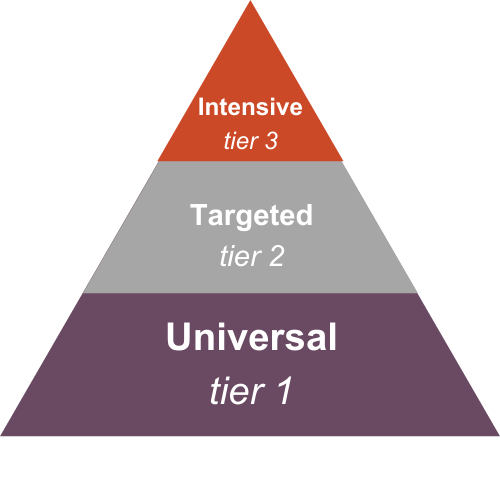Home > Overview
The Northwest Mental Health Technology Transfer Center (Northwest MHTTC) provides training and technical assistance (TA) in evidence-based practices (EBP) as well as numerous other topics, culturally-responsive and equitable approaches to mental health care and support for the workforce. We offer content in a variety of ways to behavioral health and primary care providers, school and social service staff, peer and recovery staff, therapists and counselors, outreach / day center / housing staff, and more. We serve anyone whose work has the potential to improve behavioral health outcomes for individuals with or at risk of developing serious mental illness in SAMHSA's Region 10 (Alaska, Idaho, Oregon, and Washington).
The Northwest MHTTC offers three broad tiers of training to the Region 10 workforce in an effort to ensure both breadth and depth of training the workforce in our region. Tiers correspond with reach, with lower tiers having a broader reach, and intensity, with high tiers consisting of more time- and resource-intensive implementation efforts:

Tier 3 (“Intensive”) activities aim to promote the adoption and sustainability of evidence-based interventions by augmenting training with support for practice change at the clinic or organizational and provider levels.
Tier 2 (“Targeted”) activities aim to dive deeper than Tier 1, by providing training and/or follow-up support to groups of providers through in-person and web-supported longitudinal training on foundational evidence-based approaches.
Tier 1 (“Universal”) activities aim to have a broad reach in our region. Our goal for these activities is to broadly disseminate resources that will increase exposure to evidence-based, empirically-informed, and best practices.
Area of Focus Page | Area of Focus Summary
Year One Plan | Year One Summary
Year Two Plan | Year Two Summary
2021 Needs Assessment Report Flipbook
Year Five Plan | Year 5 Summary
The Northwest MHTTC is housed within the University of Washington Department of Psychiatry and Behavioral Sciences in Seattle. The department provides a rich culture of research, educational excellence, collaboration and shared values for the Center.
The Northwest MHTTC works in tandem with the SPIRIT Lab with the same Faculty expertise and experience informing these projects. SPIRIT stands for Supporting Psychosis Innovation through Research, Implementation and Training.
